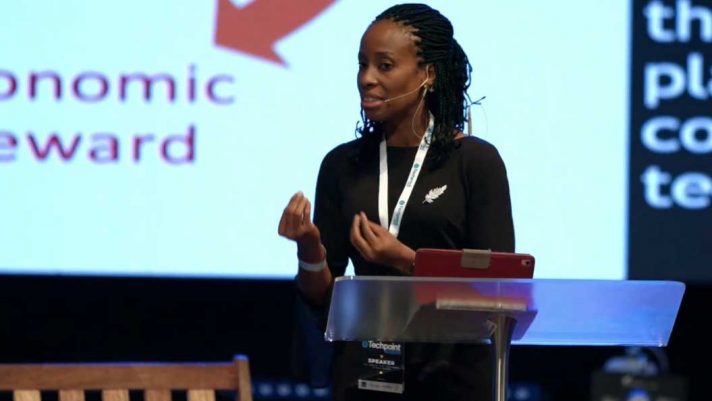Experts have stressed on the need for strong Intellectual Property Rights (IPR), which transcends into job creation and opening new markets for goods and services.
This was disclosed at the U.S. Embassy’s celebration of International IP day, “Intellectual Property and Youth: Innovating for a Better Future,” held in Lagos.
Chairperson, Section of Business Law, Nigerian Bar Association (NBA) IP Committee, Ngozi Aderibigbe, explained that IP infrastructure includes legislations, administrative bodies and enforcement.
According to her, laws that protect intellectual property include; copyright, industrial designs, trademarks and patents. These rights, she said, are generally administered by the Nigerian Copyright Commission, Ministry of Trade and Investment, who is in charge of trademarks registry, patents and designs registry, and National Agricultural seed Council.
Aderibigbe, however, noted that Nigeria’s IP laws are not adapted to the uniqueness of the nation’s development as they were adopted from foreign laws.
She listed other challenges with the laws as absence of overarching supervisory authority on IP issues and outdated legislations, regulatory bottlenecks, inefficient administration of justice, inadequate use of technology and anticounterfeiting measures.
“Our IP laws have their roots in international IP instruments and are not adapted to reflect the peculiar needs and pace of development in Nigeria,” she said.
She emphasised the need to have a national IP policy, review/amendment of existing legislations and digitisation of IP processes. She suggested prioritising IP awareness in nationwide IP Education, introduction of specialised IP courts that would be presided over by judges, who are well informed on the subject matter and improve inter government agency collaboration.
“Just having IP structures and laws to protect creativity and innovation in a country is not enough. Countries must fashion national IP policies and strategies to utilise such creations,” she said.
Aderibigbe noted that the focus on the youth this year is because of their creativity and ability to take risks, and less constraint from their experiences.
“The youth will drive economic growth by providing economic reward for innovation and creativity. IP systems encourage young innovators and creators to expand huge fields of technology and creativity.”
Senior Legal Analyst, Venture Garden Group, Ridwanulahi Olanite said issues surrounding challenges in IP are not unique to Nigeria, as they are faced generally in terms of barriers to doing cross border business in the world. He, however, noted the difficulty in obtaining objective valuation of IP works especially for third world countries.
“The value of works ascribed to works from third world countries is not as high as the value placed on first world countries,” he said. He called for collaboration in the area of globalisation and IP theft.
According to him, to solve IP challenges, there needs to be information acquisition, Knowledge sharing sessions and stakeholder engagement by policy makers and enforcement agencies.
“We need to ensure we pursue knowledge as a means to gain insight into global best practices and the approaches to solving IP issues.
“Government agencies in Nigeria, most times, do not discuss with stakeholders before carrying out policy making,” he stated U.S. Ambassador to Nigeria, Mary Beth Leonard, said the American government is committed to promoting public awareness of the importance of protecting and enforcing intellectual property rights (IPR) as a strategic resource for bolstering economic growth in Nigeria.
She encouraged stakeholders in the IP space to shore up Nigeria’s IPR legal framework and lay a solid foundation for the youth to drive innovation and engender a more prosperous country.
“Nigerian youths are an incredible source of ingenuity and creativity. A strong system of intellectual property rights assures inventors, industrial designers, musicians, and artists alike that their creative content will be protected and valued,” Leonard said.
Director General, World Intellectual Property Organisation (WIPO), Daren Tang, emphasised the need to develop a more inclusive IP ecosystem that works for everyone.
According to him, global youths are at the heart of the work being executed by WIPO where IP is not just a legal right but transcends into economic and social development for all countries.
“New innovators are constantly seeking ways to tackle local and global challenges by taking actions to create the world they want to see,” he said.
He added that there is need to empower youths with tools to shape the future by unleashing their creative potential. Minister of Science, Technology and Innovation, Ogbonnaya Onu, noted the importance of understanding the basis and application of IP due to the dynamics of the youth population.
For the ministry, since 2004 WIPO, assisted Nigeria through the ministry to create awareness about IP in Nigeria research institutions through its university initiative, which metamorphosed into establishment of technology transfer offices in university and research institutions called Intellectual Property and Technology Transfer Offices.
He added that the ministry has revised the National Science Technology and Innovation policy document with emphasis placed on IP, spanning awareness creation, development and protection.
“As Nigeria’s economy expands, IP would be expected to play a better role in driving economic development,” he said. Director, U.S. Embassy, International Narcotics and Law Enforcement (INL), Jason Smith, said IP rights are keystone for fostering innovation around the world and ensuring innovators, musicians and others are protected and supported as they continue to create new IPs.

